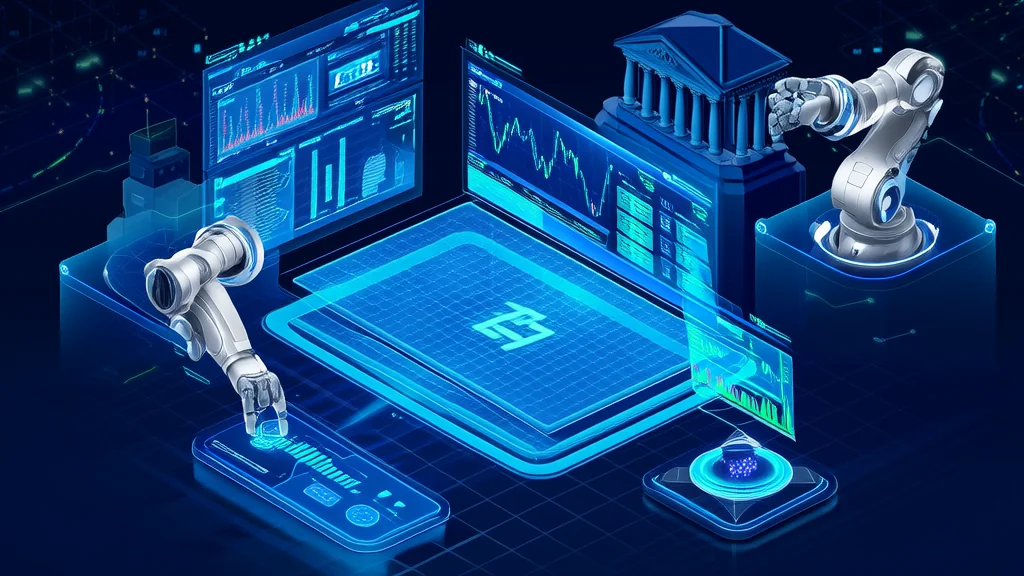AI Innovations: Transforming Finance and Empowering Startups
As we step into the future, artificial intelligence (AI) is not just a buzzword; it's a transformative force reshaping industries. From finance to startups, AI is driving practical solutions and creating new opportunities. Let’s dive into some of the latest developments that are making waves in the real world.
AI-Driven Financial Solutions: Revolutionizing Personal and Corporate Banking
AI is increasingly becoming a cornerstone in the financial sector, offering innovative solutions that enhance efficiency and customer experience. One notable example is the rise of AI-powered personal finance assistants. These digital helpers, like Plaid, use machine learning algorithms to analyze spending patterns, provide budgeting advice, and even detect fraudulent transactions in real-time.
Practical Impact: For consumers, this means better financial management and security. Banks and financial institutions are also benefiting from AI-driven tools that automate compliance checks, reduce operational costs, and improve risk assessment. For instance, JPMorgan Chase has implemented an AI system called COiN, which processes legal documents and extracts key information, saving thousands of hours of manual work.
Real-World Examples: In the UK, Monzo uses AI to offer personalized financial advice and alerts, while in the US, Ally Bank leverages AI for fraud detection and customer service chatbots.
Future Implications: As AI continues to evolve, we can expect more sophisticated financial products and services, including predictive analytics for investment decisions and enhanced cybersecurity measures.
Innovative AI Startups: Disrupting Traditional Industries
The startup ecosystem is buzzing with AI innovations, and one area that stands out is the healthcare industry. Companies like Babylon Health are using AI to provide virtual consultations, symptom checkers, and personalized health plans. Babylon’s AI chatbot, for example, can diagnose common illnesses and recommend appropriate treatments, reducing the burden on healthcare systems and providing quick, accessible care.
Practical Impact: For patients, this means faster access to medical advice and more efficient healthcare delivery. For healthcare providers, AI can help manage patient loads, reduce administrative tasks, and improve overall quality of care.
Real-World Examples: Babylon Health has partnered with the NHS in the UK to provide its AI-powered services, significantly reducing waiting times and improving patient outcomes. Similarly, IDx-DR, an AI diagnostic system, has been approved by the FDA to detect diabetic retinopathy, a leading cause of blindness.
Future Implications: As AI startups continue to innovate, we can expect more personalized and proactive healthcare solutions, potentially leading to early detection and prevention of diseases, and more efficient healthcare delivery systems.
Big Tech and AI: Strategic Partnerships and New Products
Big tech companies are not only developing their own AI technologies but also forming strategic partnerships to stay ahead of the curve. Google, for instance, has recently announced a partnership with Anthropic to integrate advanced AI capabilities into its suite of products. This collaboration aims to enhance Google’s AI offerings, particularly in natural language processing and content generation.
Practical Impact: For businesses and consumers, this means more powerful and versatile AI tools. Google’s integration of Anthropic’s AI will likely lead to more accurate and contextually relevant search results, improved language translation, and enhanced content creation capabilities.
Real-World Examples: Google’s Workspace suite, including Gmail and Docs, is already benefiting from AI enhancements, such as smart replies and automated document suggestions. The partnership with Anthropic is expected to further these advancements, making the tools even more intuitive and user-friendly.
Future Implications: As big tech companies continue to invest in AI, we can anticipate more seamless and intelligent software solutions, driving productivity and innovation across various sectors. Additionally, these collaborations may lead to new AI standards and best practices, shaping the future of technology.
Conclusion
From revolutionizing financial services to disrupting traditional industries and driving innovation through strategic partnerships, AI is transforming the way we live and work. These developments not only have practical implications but also highlight the potential for AI to solve real-world problems and create new opportunities. As we move forward, the continued evolution of AI promises to bring even more exciting and impactful changes.
